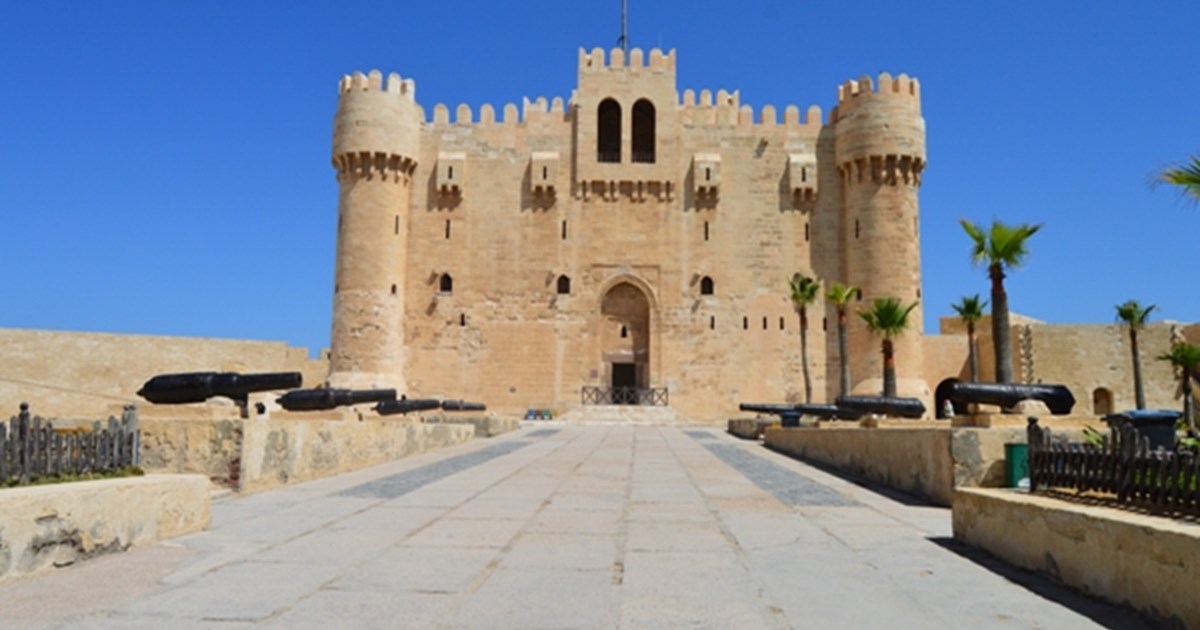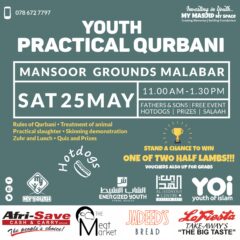Through history, we see times where Muslims have been at a very low point. We had been in very, very dangerous, perilous situations where there seemed to be no way out of it. Quite similar to what is happening in Gaza and Palestine at the moment where they are being mercilessly crushed and slaughtered. But then there came a time, if you look back in history, where the hero of the moment stood up. And he turned back the tide and the Muslims once again rise rose up.
Among those incidents was the liberation of Masjid Aqsa by Salahuddeen Ayyubi rahimahullah. And then if you go forward about 70 odd years after that, the Battle of Ain Jalut which took place in Palestine, where the Muslims turned back the tide of the Mongol onslaught.
In this article we touch on the battle of Ain Jalut. When we read about these heroic achievements, we seldom go behind the scenes to see what brought them to that point where they could end up serving justice, serving Islam and being on the right side of history. In this article we will explore the backstory of what happened behind the scenes at the Battle of Ain Jalut and some lessons which we can then implement within our lives, especially for Ramadaan, which is around the corner, for our lives in general, and for the situation in Palestine.
The story starts in the late 12th century in Syria where a youngster was born and goes on to become one of the great Islamic scholars. His name is Izzud Deen ibn Abdis Salaam. He was born about six years before the liberation of Aqsa and he went on to become a very prominent scholar. He is known as Sultan al Ulama, the leader, and the chief of the Ulama. He teaches in the Umayyad Masjid in Damascus.
When Salahuddeen concluded his battles with the Crusaders he signed some treaties with them, leaving them with a few portions of land in Palestine and Syria. He also divided up his kingdom amongst his sons with the purpose of them working together from their respective regions. After sometime this system falls apart. Every ruler is looking out for his own piece of territory, looking to secure his power base. This is very similar to what is seen today in the Arab and Muslim world. Every country is trying to hold on to its bit of power at the expense of the power of the Muslims collectively. With this infighting and bickering, the Muslims start losing their strength and eventually become the plaything for any enemy out there.
The ruler of Damascus Saalih Ismail does something treacherous. He forms an alliance with the Baron’s Crusade in 1240. The Crusaders are coming in once again. He allies with Emperor Frederick II from Germany to get military help against his brothers in the Kingdom of Egypt. To achieve this, he gives away certain pieces of land of Palestine among them Gaza, Nablus, Bethlehem and to the outrage of the Muslim Ummah, he gives away Jerusalem as well. You can imagine he has undone what Salahuddeen achieved with so much effort and he gives it away to the Crusaders. Luckily this time around Jerusalem did not stay long in the control of the Crusaders. The Khwarizmi from Persia liberated it for Islam from the Crusaders 3 or 4 years later.
Izzud Deen is a scholar who was employed by the state. He is going to be giving the Juma Khutba and needs to follow certain protocol as a scholar who is employed by the state. He gets onto the Mimbar, he does not wear the prescribed clothes that they told him to wear. He does not praise the king. He does not read the Khutba in the name of the king, which is the custom in the Muslim countries. And in fact, speaks against this alliance with the Crusaders. You can imagine when he comes off, he is arrested and put into jail. Saalih Ismail is killed and Izzud Deen is then freed.
He goes on to Egypt where he is welcomed with open arms. He is a very pious personality. The king Najmuddeen makes him his right-hand man, his advisor. He becomes the Chief Justice in Egypt and is now giving rulings in Cairo. The years go by, and he becomes very popular among the people. They love him. 20 or so years later the threat of the Mongols arises. In 1258 Baghdad is sacked and falls. The people are butchered. The Khalifa himself is killed. The Mongols come into Syria. They take the cities of Damascus and Aleppo. And now the way towards Palestine is opened. If they come through to Palestine and they are unchecked, then they will go on to possibly take Makkah Mukarramah and Madinah Munawwarah.
Izzud Deen is now at an advanced age, yet he starts motivating the people for Jihad and to take up arms to meet the Mongol threat. He sends Ulama out to all the villages and the towns, and he stirs the people to take a stand against the threat that is imminent. The Mongols up to this point have never been defeated on the battlefield. You can well imagine that no one wants to take a chance against them as well. As Salahuddeen had done 70 years before taking the spirit of the Egyptians which led to the freeing of Jerusalem from the Crusaders, Izzud Deen now does the same. Egypt through history has been the backbone of the Muslims.
The people’s spirits are stirred up and Sultan Qutuz is now in power. He hails from the Mamluks who have taken control. The Mamluks were previously slaves. They see that the Muslim rulers have become very weak and they come into the vacuum and take power. They come at a point where the Muslims need them the most, and they do a valuable service to Islam in many ways. They strengthened Muslims and protected against the threats that are outside there. Sultan Qutuz says to the people that we need a strong ruler. Once the threat of the Mongols has been neutralized, you can take me out of power and elect whoever you want. The Mamluks are ruling over Egypt and eventually go on to rule over Syria and Hijaz. They now bring all the factions together. The critical ingredient in facing our external threats as a nation is that we need to be united. A united front is the only hope and an essential ingredient for the Muslims to see off any threats that are out there.
The stage is set. The factions are united. The people are all motivated for the jihad. The government officials and princes now discuss ways to get funds to equip the army. As with governments everywhere the first thing they suggest is to raise the taxes. Sultan Qutuz looks at Izzud Deen Ibn Abdis Salaam to see what he is going to say. Izzud Deen says, “My Prince. We want to win this war with the help of Allah Ta’ala. We need His assistance to gain victory. To achieve this, we need to root out all the corruption that is within society. You people are princes running the government. You need to give back all the extra wealth and palaces you have amassed. Give back whatever jewellery your wife has taken from the treasury.” One can imagine the outrage among the princes. Sultan Qutuz knows that his focus is on one particular goal. He says we are going to do what Izzud Deen suggests. Everyone gives back all their excess wealth and deposit it with the government treasury.
Izzud Deen is 78 or 79 years old. He says the sacrifice the rulers have made and says that he is ready to stand on the battlefield holding a sword himself on the frontline alongside his king, Sultan Qutuz. The Egyptians are all together, the public is inspired and the Egyptian army marches into the battlefield at Ain Jalut which is north of Jerusalem in 1260. In this battle the Mongols face their first ever defeat on the battlefield. The Mamluk army not only saves the lands of Islam, but even Europe from further onslaught of the Mongols. You can imagine the scene with this venerable scholar also standing on the battlefield. As they return, Sultan Qutuz is killed. So he didn’t really rule for much time, maybe about a year or so. What does Izzud Deen say on his passing? He says that if ever there was a ruler who was committed to justice from the time of Umar bin Abdul Aziz, this was the man. He felt great sorrow at his passing. Izzud Deen also does not live very long. About two years later, he also passes away.
This is the back story to this remarkable, heroic achievement. This battle of epic proportions which left its indelible mark on history. Let us take four lessons from it:
- The very first thing we need to look at to see true success in whatever we want to achieve is that we need to make some sacrifice for the sake of Allah Ta’ala. These Mamluk rulers sacrificed the money that they had taken, their wealth, and their luxurious lifestyle. They made the sacrifice and the people together with them. If we want to see true success, the true and maximum effect of our worship in Ramadan or whatever we are doing in our life. We need to start with sacrificing the sins within our life, assess our lifestyles, and identify the sins we want to eliminate. The sin might be giving me great enjoyment and it is embedded in my life, but I am going to sacrifice it to maximise the benefits of my worship.
- Personal connection with Allah Ta’ala. Together with this, we need to reaffirm our personal connection with Allah Ta’ala. Allah Ta’ala instructs the Prophet sallallahu alaihi wa sallam, “When you are free (from collective services), work hard (in worship).” (Noble Quran 94:7) Once you have finished from the collective worship and looking after the community, bringing them towards Islam, assisting them, taking them towards Paradise, then you need to personally engage in worship of Allah Ta’ala. The Prophet sallallahu alaihi wa sallam’s whole day was for the community at large, essentially an indirect act of worship. Now he is instructed that once you finish with this, engage alone, one-on-one, and stand and reaffirm your connection with Allah Ta’ala.
Fansab in the verse means to tire yourself. We might not reach that level of sacrificing for worship like the pious people but what we can do is set aside a set portion, every day for worship. Once you bind yourself to something, no matter how little it is, it starts becoming a sort of pressure upon you. If you do something occasionally, casually, whenever it’s convenient, that’s easy. Rather, set yourself the goal of daily reading extra two Rakaats of optional Salaah before you sleep for example. Some days you might come home and it’s very late. You might not have read those two Rakaats. Forcing yourself to read now becomes a small sacrifice for Allah Ta’ala. Dedicate a set portion of the Noble Quran to read every day no matter how little and it becomes a sacrifice of sorts for Allah Ta’ala. Turn towards Allah Ta’ala no matter how we do it. This will bring about that sense of sacrifice for our connection with Allah Ta’ala. We might be engaged in the great work of learning and teaching Islam.
Allah Ta’ala describes the characteristic of the personal worship, “and towards your Lord turn with eagerness.” (Noble Quran 94:8) This eagerness with which we need to turn to Allah Ta’ala. We need to show passion and devotion in our worship of Allah Ta’ala. How many of us spend even a few moments in our day in Dua and asking from Allah Ta’ala. We need so many things in life so we need to be constantly asking. Ibn Ataaillah rahimahullah says, “If Allah Ta’ala gives you the opportunity and ability to make Dua and ask, it means that He wishes to give you those things. If we have not made Dua for the day, how is it possible that we are going to get what you want?
- Break the ego. Thirdly, we need to break down our ego, our sense of self-importance. Like the Mamluks who found it very difficult as public figures to give back the money they had taken through corruption, yet they broke themselves down in the eyes of the public and success came from Allah Ta’ala. We also need to break down all the sense of arrogance and self-importance that we might have. Set aside our personal issues to work together for the greater good of the community. If we are not concerned about who gets the credit as long as the Ummah benefits, there is no limit to what we will be able to achieve as a community. We need to bring ourselves down, humble ourselves to such a degree that we put our pride aside and go to the Ulama and ask them the rulings of Islam. Ask them how do I live my life; how do I correct my life?
- Dream big. The final component of the success story at Ain Jalut was to dream big, to have high aspirations. The Egyptians didn’t just sit down and say it’s not our problem, the rest of the world can suffer but we are quite safe. They looked at the greater good of the Muslims. They said no one has beaten the Mongols but it doesn’t matter. We will take them on and gain victory. We need to dream big. We should not be limiting our goals. What seemed impossible to them became a reality. The defeat of the Mongols. Aim to be the next liberator of Aqsa and Palestine. You might be in the medical field. Aim to be the person who will find the cure for cancer. Those lawyers were standing at the International Court of Justice, who would have thought while they were doing their studies that they would one day come onto the world stage to take terrorist Israelis to account for the genocide that they are perpetrating in the land of Palestine. So don’t ever restrict ourselves in our dreams. Dream big.
At Ain Jalut, after all these combinations of things came into place, Allah Ta’ala put the right king, at the right time, with the right advisor, at the right moment, the window of opportunity opens and they left their mark on history. We can do the very same if we put this plan into place. We can achieve things that we might not have dreamed ever possible. Ibn al Jawzi rahimahullah says, “Fly high with the wings of hard work to gain the high towers of Paradise.” Work hard, exert yourself dreaming of the ultimate pleasures of Paradise and its fabulous upper levels, not just for the lower levels.








COMMENTS